I’ve experienced a change of pace over the last few days. On Monday, I reached Lagos, a city of 30,000 and the beginning of Algarve’s developed southern coast. Suddenly, there are more apartment buildings, more construction cranes, more traffic, and way more British accents. And fewer (read no) cows and goats.


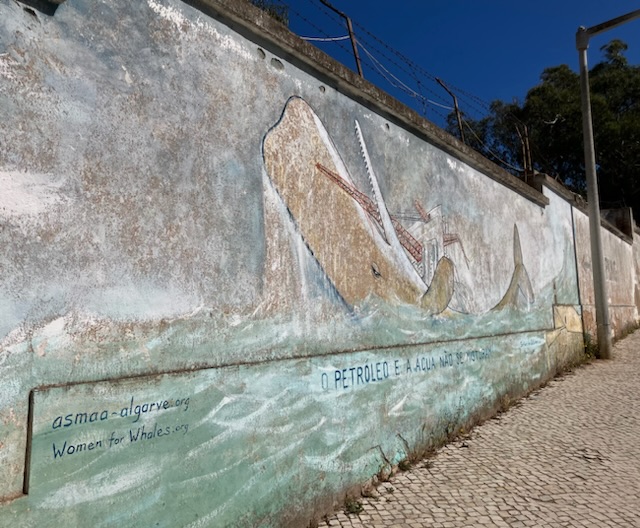
What Lagos lacks in quiet, it makes up for in vibrancy and history. There are cafes on every corner, enticing aromas and music spilling from restaurants, sidewalk vendors selling cork handbags and beach dresses, and lots of visitors like me. And there is history — including a 16th century fortress, a walled inner city, and a central plaza with a magnificent ingreja.
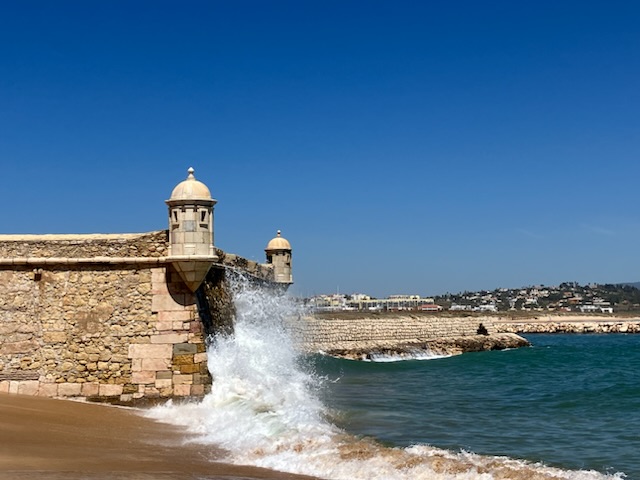
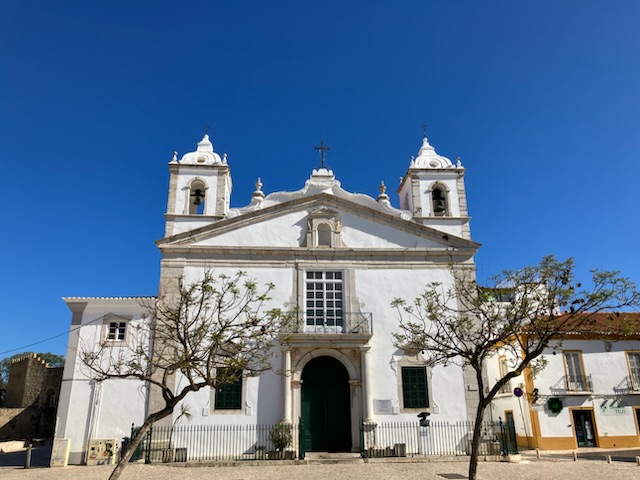

I was wrong when I said in my previous post that the Portuguese voyages of discovery set off from Sagres. Most set sail from here in Lagos, 20 k down the coast, where there is a much larger harbour.
Lagos also has a darker claim to fame. It was here in 1444 that the first slave auction in Europe was held. Two hundred and thirty-five men, women, and children abducted from their homes in Mauritania were sold. Overseeing that auction, and pocketing 20% of the proceeds, was none other than Prince Henry the Navigator himself.
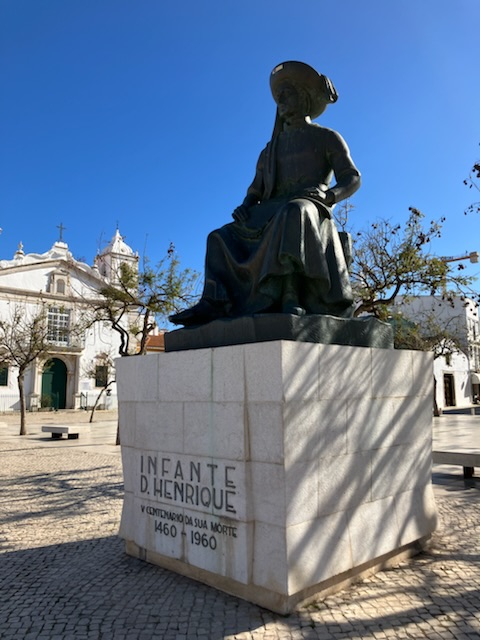
Over the next four centuries, Portuguese vessels transported an estimated 5.8 million Africans into slavery.
Today there is a small museum where the Lagos slave market once stood. I was deeply moved by my visit there. The museum contains just a few artifacts, some firsthand accounts of that first auction, and the stories of what happened to the people who were enslaved in Lagos. Because it is so spare and simple and filled with light, it gives you the time and space to reflect on what took place here six centuries ago.
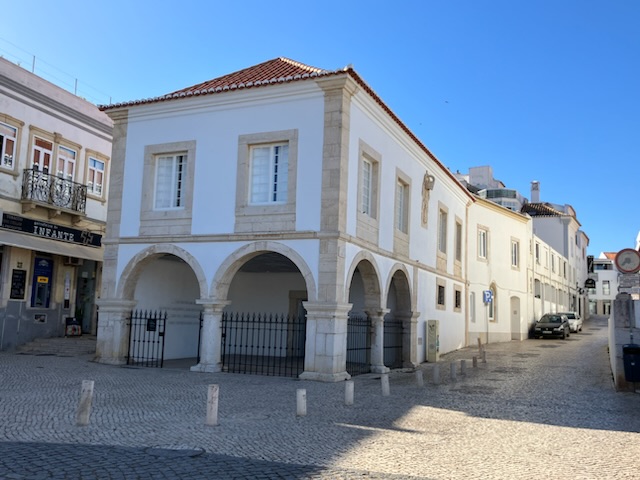
I am reading The Portuguese by Barry Hatton as I walk. Hatton has been the Associated Press correspondent in Lisbon for 30 years. He married a Portuguese woman and they raised a family in Lisbon — so pretty solid credentials. He contends, and he backs this up with quotes from Portuguese historians and sociologists, that although the Portuguese haven’t come to terms with their involvement in the slave trade (Portuguese like to believe that theirs was a gentler, kinder form of slavery than that practiced by the Spanish and British), Portugal has by far the most integrated society in Europe. The Portuguese embrace the richness that African and Arabic residents bring to their culture — you can hear the harmonies of the Sahara in Portuguese popular music, and you can taste the flavours of Mozambique in many Portuguese dishes. And while right wing politics certainly exist here, they tend to focus on conservative social and fiscal policies, rather than the ‘threat’ of immigration.
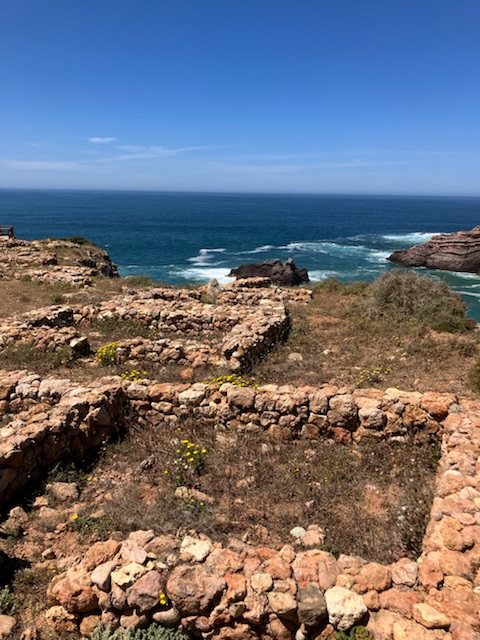
As I write this post, I am back on the Atlantic coast, 33 km from Lagos, in a small village called Carrapateira. Quite a contrast. No crowds. Just one cafe. On the 5 km-long beach here, I counted exactly 18 people.
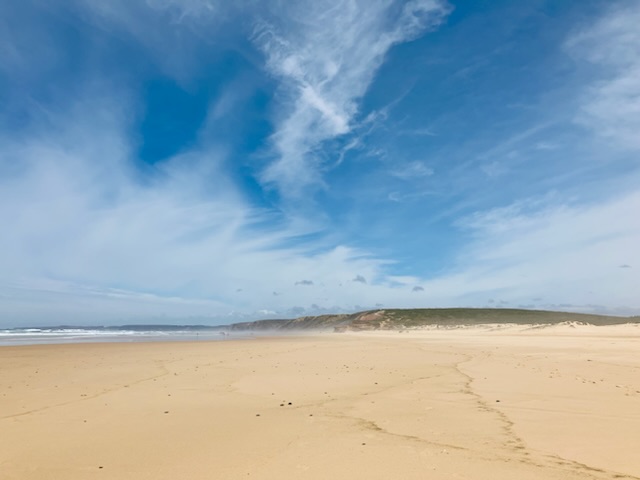
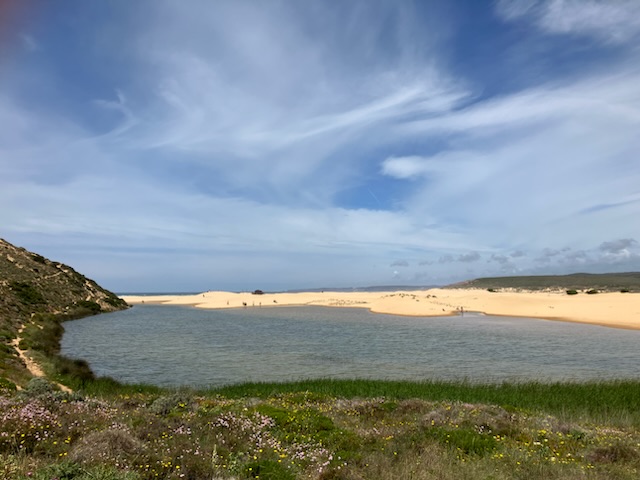
The one tiny grocery store in Carrapateira closes for three hours in the middle of the day. But the birdwatching has been grand — today I spotted Northern Gannets diving for fish offshore. Tomorrow, I head north, this time following the Fisherman’s Trail (rather than the Historical Way) back towards Arrifana.